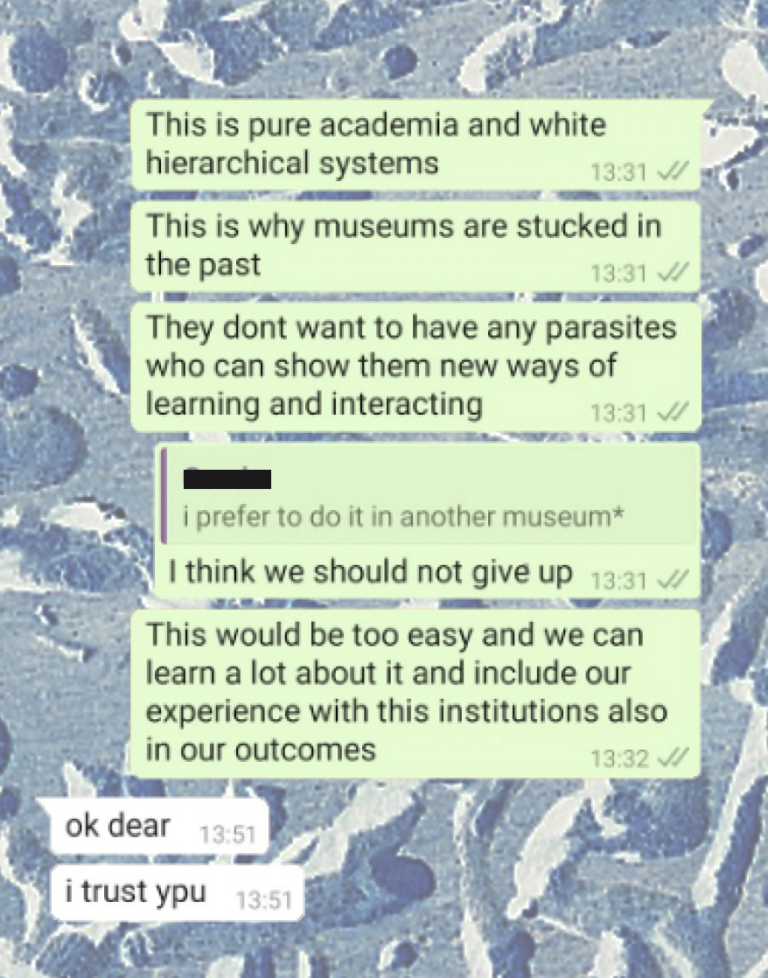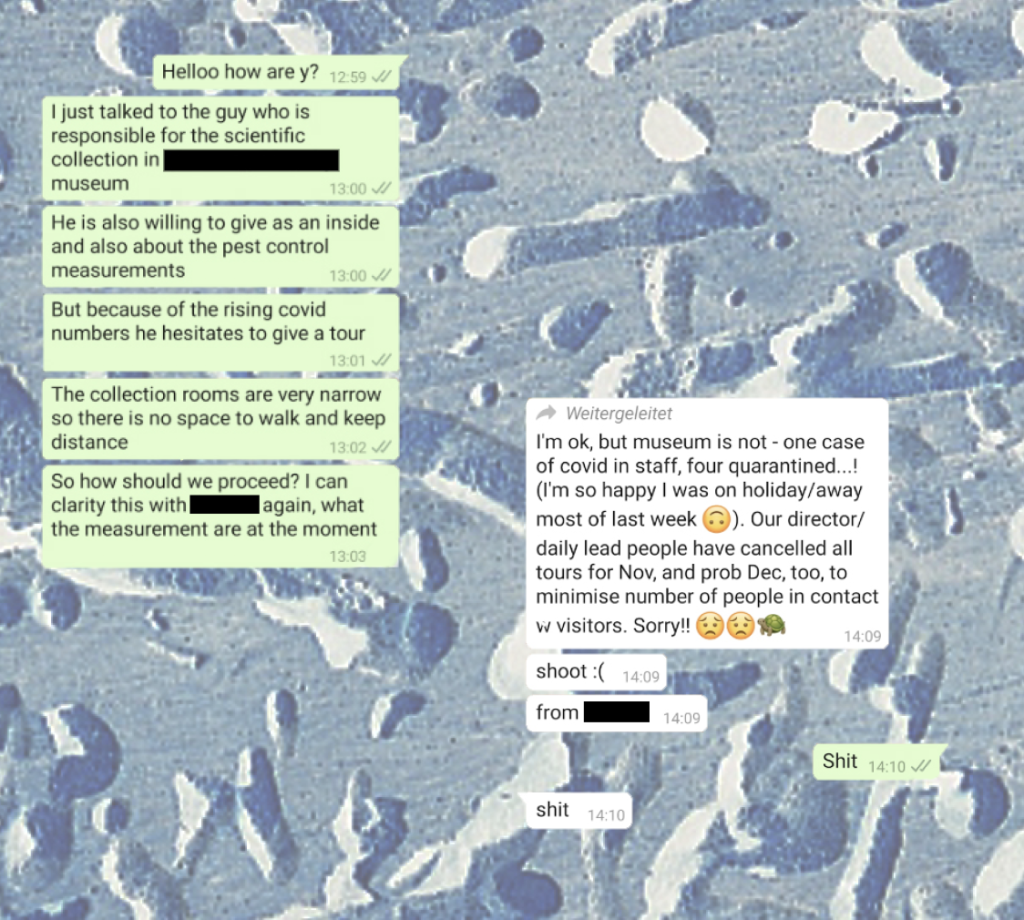Parasites at Work
The parasite is an exciter.
Far from transforming a system, changing its nature, its form, its elements, its relations, the parasite makes it change states differentially. It inclines it. It dopes it. It irritates it. It inflames it.
The parasite intervenes enters the system as an element of fluctuation. It changes its state, changes its energetic state, its displacements and condensations. The parasite, the mixer of meanings or voices, the dissolution of signals in the fog of noise.
The parasite is always an exciter.
~
Michel Serres (1982:191)
When we were ready to contact the institutions, we knew it wasn’t going to be easy. Our initial idea was to reach someone in charge, who would lead us to the curator or researcher in the institution.
Power Structures This was very clear from the start, in all of our communications via zoom, email, and messages. Not willing to share the contacts of their fellows, we soon realize that it is not only a problem of stepping out of their comfort zone but also a structural issue; when strange ideas, projects, and people reach out, they do not seem to know how to position the institution and their employees. There is a complex, continuous miscommunication within the institution. One time, we were told to contact a person in charge of public relations in the museum. Surprisingly, we received a tempered reaction not from the person we contacted but from someone we already reached, stating that we should not bother or involve new people in our project. This reaction was caused by us, skipping the hierarchy, unintentionally.

Institutional Expectations
For a while, it seemed that only heavy academic research and approach was mandatory to continue on a quest as if the simple non- academic curiosity of us is not enough for them to collaborate. As the conversation continued, the institution also claimed that the answer to our questions is already known by the public- meaning our questions were not special enough and if people wanted to learn, they could always search the internet since information is out there. At the same time, we were not happy with our use of the word ‘parasite’ claiming that is it only a metaphor that used for political and social relations. This happened before we were able to address the word properly in our research. It was obvious, that they required, ready, packed, and condensed research. No time for quests, process, and progress.

So how should we proceed?
After our meetings, we started to have self- doubt about our research. We had internal conversations about how to make our project more sophisticated, or whether we are even thinking as such. As we restructured our text, we hoped that this time it will be good enough. We explained our project once again, with clear objectives and goals, trying to turn it into more structured, academic research. After we sent the expected email, we had to let it sink in. Two days later, we decided to stick to each other, to our initial plan, and believe in our project. We had to remind each other, that we are not doing this to satisfy an institution. We are on a journey, fired by our curiosity of the parasite- the abjected ones inside the natural history museums. We are still insisting on our very non- academic, maybe sloppy yet passionate research methods.

Remembering ‘the abjected ones’ we think through in our research, we realized that we were not much different from them.
Everything is more personal now, and we can’t wait to see how it all unfolds.
The parasite is an interference in a system. Just like parasitism is part of every relation, the noise makes the system work. No system is without its flaws, errors, accidents (ibid.: 12). Every system has its parasite, an agent “who has the last word, who produces disorder and who generates a different order” (ibid.: 3). Whenever a parasitic agent takes over and overturns a system, more diversity and complexity are created in that act. Indeed, inorganic and organic viruses are essential in order to see where the weak points are in a system (Parikka/Sampson, 2009).
This productive tick/noise may reveal the liveliness of a system and thus its fragility.
Beatrice Zaidenberg
Beatrice is a MA Art History student at Humboldt University Berlin.
Gözde Filiante